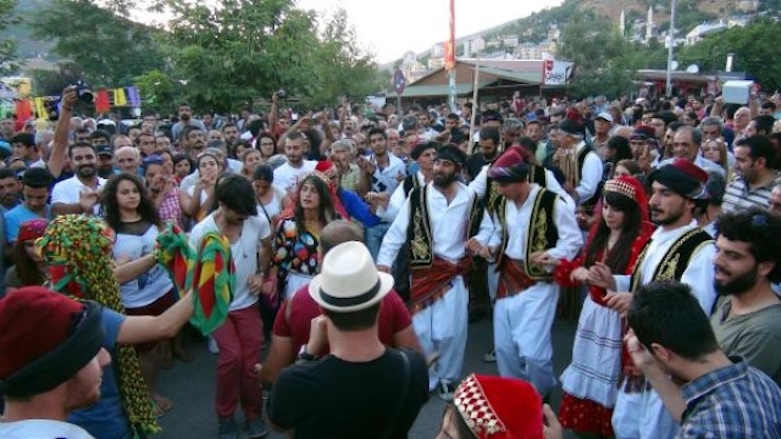Three music groups banned from festival in Dersim by Turkish authorities

ERBIL (Kurdistan 24) – Local Turkish authorities have banned three music groups from participating in the 20th Munzur Culture and Nature Festival in Dersim (Tunceli), and have also detained seven individuals, prohibiting them from reentering the city.
The Tunceli Governor's Office has banned performances by Grup Yorum, Group Isyan Ateşi (Fire of Rebellion), and Veradardz Folk Group at the 21st edition of the annual Munzur Festival, which is scheduled to take place in the Kurdish-majority city of Dersim (Tunceli) from Aug. 3rd to Aug. 6th.
After the decision, seven people were detained in Seyit Riza Square on Monday evening, some of them are members of the Group Isyan Ateşi. The members of the group were released in the morning in Erzingan and they were forbidden to reenter the city.
Read More: Kurdish cultural festival banned in Turkey
The festival takes its name from the Munzur mountains and the river that runs through them. In 2017, the local authorities imposed a complete ban on the festival.
Originally known as Dersim, it was renamed to Tunceli, or "the Iron Hand," by Turkey's founder, Mustafa Kemal Ataturk, after his military campaign against rebels in the area in 1938.
Read More: Kurdish city returns to original name 'Dersim,' attracts Turkish ire
It referred to Ataturk's military campaign against the region's Kurdish population, led by the 78-year-old political leader Seyiz Riza, who was executed by hanging. The operation caused around 15,000 civilian deaths and forcibly relocated over 10,000 others to Turkish-speaking western regions of Turkey.
The campaign aimed to control the mostly self-governing region, resulting in massacres and forced Turkification of the local minority Alevi Kurdish population, which the Kurds now regard as a genocide.
